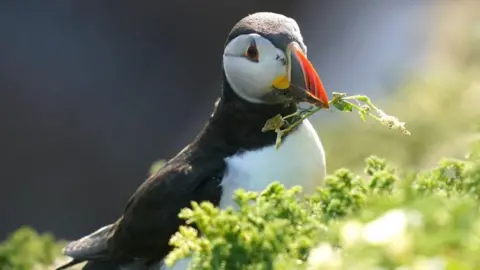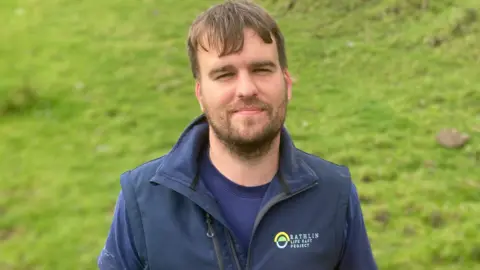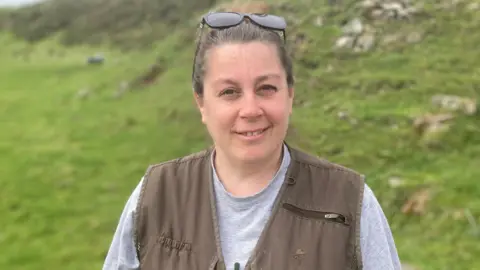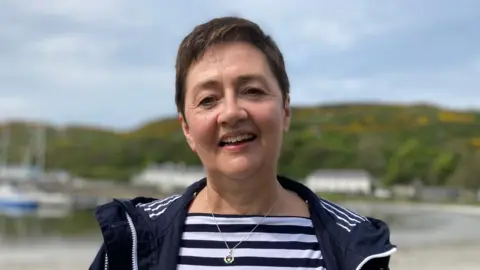Ferret detecting dog protecting Rathlin's puffins
A detection dog has joined the fight to save seabirds on Rathlin Island.
Woody, the two-year-old Fox Red Labrador, will help trace any remaining ferrets on the island.
The ferrets pose a threat to puffins and other seabirds for which the island is renowned for.
Traps were deployed in October 2023 in the first stage of a world-first plan to eradicate ferrets and rats.
The team behind the LIFE Raft project hopes the complete removal of both invasive species will protect internationally-significant bird populations.
Both ferrets and rats prey on the eggs and young of the vulnerable bird species that use the island’s cliffs for breeding.
Almost 100 ferrets have been trapped and humanely destroyed in the first stage of the project.
 PA Media
PA MediaIn September 2024 more than 6,000 bait stations will be laid across the island, in a final effort to make Rathlin free from these invasive non-native species.
Thousands of people visit the island every year to witness the spectacle of birds including puffins nesting on the cliffs.
But just one in three puffin chicks, or pufflings, survived last year with the predators playing a role.
Tourism is critical to the economy of the island and the chair of the Rathlin Community Development Association, Michael Cecil, said that made the LIFE Raft project important to everyone.
“Protecting the wildlife means protecting a whole way of life, as well as securing the livelihoods of many of the people who live here," he added.
"This project has the potential to protect the future of this historic island.”
'Ludicrous energy levels'

Those behind the project are confident they are on the verge of the first ever removal of ferrets from an island.
Fieldwork Manager Michael Rafferty said everyone on the island was excited to welcome Woody.
“It’s been no easy feat attempting a world-first eradication, and we knew we needed the best dog for the job to get us over the finish line.
“Woody's ludicrous energy levels, uncanny sniffing skills, and goofy grin ticked all our boxes.”
Michael will be Woody’s handler as he begins his first stint on the island.
The dog is touring the island first to get used to his new surroundings, before being deployed to see if he can find any remaining ferrets.
Then he will undergo retraining for the second phase of the project which will focus on brown rats.

Natasha Woollon trained the Red Fox Labrador pup in England.
“Woody is a lovable rogue, he is an absolute fool, he’s lovely.
“A perfect detection dog, he’s got detection drive, hunt drive so he’s just really easy to train and really lovely to train as well.”
Ahead of the next phase to eradicate rats, islanders are also playing their part.
'People will be able to keep chickens again'

Residents like Teresa McCurdy are clearing out sheds and barns, making sure there is nothing that would give a rodent a hiding place.
She is delighted with the progress of the project and the difference it will make to island life, with one benefit in particular
“People will be able to keep chickens and have their own eggs again.”
The £4.5m LIFERaft project is funded by EU LIFE, National Lottery Heritage Fund, Garfield Weston Foundation and DAERA.
After it ends in 2026, it is hoped Woody will play a part in monitoring biosecurity to help prevent any non-native species returning to the island.
